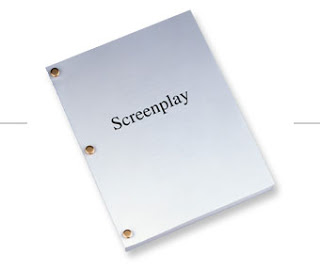
Doing something scary and challenging for the first time can be difficult. It took a lot of persuading on my friend’s part to get me on my first roller coaster (that also turned you upside down) and then I couldn’t get enough. I made her ride the same thing over and over again after that.
The process of sending my first query letter was intimidating, but now I actually like querying. Sure, it’s annoying when you aren’t drowning in exciting sellable ideas and the wait is never fun, but querying is no longer the nerve-wracking part.
Now that I entered a screenwriting competition (where you got to submit your entire script), I’m on the constant lookout for other contests. Two scripts (one movie, one TV pilot) are ready, the loglines are written and all I have to do is find approaching deadlines.

There are several prestigious competitions with awesome rewards (yes, this will be a post later), and coming up as a finalist from those can give you a decent break in the industry.
Sure, most charge a certain fee to enter, but I think it is worth it. If anything, you are even more tempted to make your story tighter and more compelling since you don’t exactly have money to burn in the beginning of your career. And you cringe at the thought of a judge hating your idea or your storytelling. So you try harder.
But how patient are the judges? How much time do they give you before they toss your story away and pick up the next entry? I’d like to think they read about a third before giving up, but maybe that’s just wishful thinking on my part.
What brought this on? Well, as writers we are always told to make our openings and first pages (and obviously the following pages after that) as unputdownable as possible. This is common sense. We don’t read stories that bore us. So it’s only fair that we make our stories interesting. It’s also fair to us too – it’s not like we’d be wiling to put hundreds of hours into something unexciting.
But completing the first 10 pages is a bit tricky, isn’t it? There’s a lot to be introduced, and there is a certain purpose to our scenes. Yes, we experiment a lot and come up with the best order possible, but in the end, we choose what makes the best sense for our story, characters and genre. Shaking up things for solely attention’s sake wouldn’t get us very far.
Why the first 10?
I was researching about other screenwriting competitions when I came across a comment from a writer who had participated as a judge in a contest and said they were allowed to pass after 10 pages. Ouch.
Thinking back, a lot of the movies I watched and novels I read weren’t that amazing in the first 10 pages or minutes. If I had passed on all the novels and movies with non-brilliant (but quite alright) starts, I’d have missed on a great deal of amazing work.
Ah, the limitations of a logline…
A logline is a short description of your story (preferably 1-3 sentences, depending on the preference of the competition/agent/etc).
Yes, it is a must element of fiction writing. You need to be able to come up with a concise yet intriguing description of your script – you will need to impress agents, studio execs, other writers, etc. in a very short time frame. And it is also great writing practice.
But the problem with brevity is that it doesn’t involve any of the alluring details that made the story worth writing; something other than a generic, done-a-million-times-before premise.
And even if you manage to squeeze in a unique point without breaking an essential logline rule (like acceptable length), it is still far away from what made your story worth telling.
John Evans’ How to Craft a Compelling Logline (obtained via PAGE International Screenwriting Awards’ newsletter) is one useful logline writing resource, and it lists some good examples of some famous stories (it also includes how it shouldn’t be done):
Potential Logline for Gladiator: “When a Roman general is betrayed and his family murdered by a corrupt prince, he returns to Rome as a gladiator to seek revenge.”
Potential Logline for Up in the Air: “A corporate vagabond’s high-flying lifestyle is jeopardized when a woman just like him captures his heart and an ambitious new co-worker threatens his job.”
Now, I watched Up in the Air and I liked it. I also find Evans’ logline to be spot-on. But would this logline compel me to read the script or watch the movie? I’m not so sure.
This is where your 10 pages (or hopefully at least bit more than that) come in. Along with your logline, your beginning is your chance to hook your readers.
After reading the 10 pages comment that inspired this post, I went back and read my first 10 pages of the two scripts I submitted. And while they do a good job introducing characters and foreshadowing, they need a bit more time (aka more scenes) to escalate.
Fingers crossed for patient judges who see what you see in your story and keep reading. And may we write better and better loglines and the most impressive beginnings (and more.)
How do you feel about loglines?
*